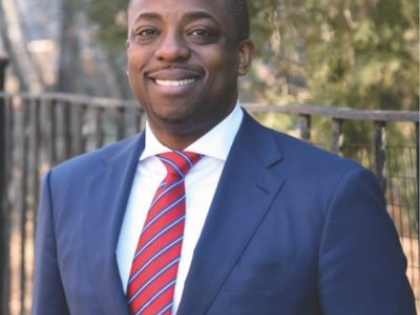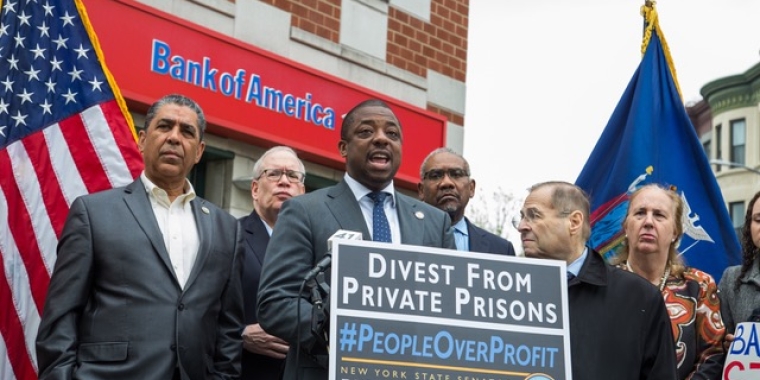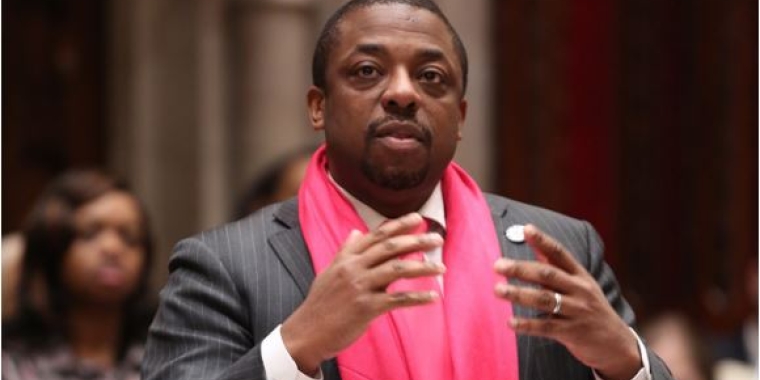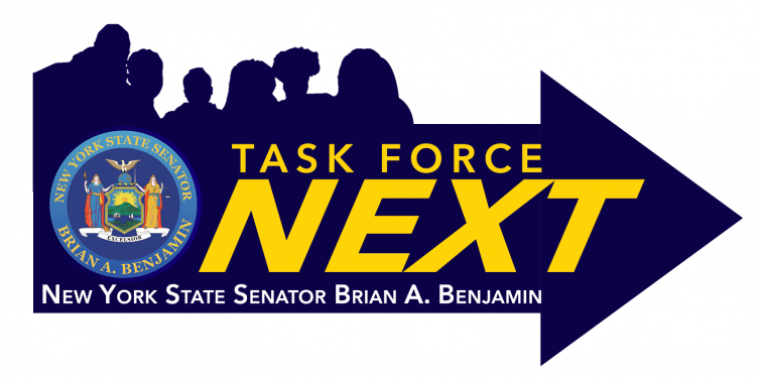
Senator Benjamin Calls on Financial Institutions to End Relationships with Private Prison Companies
Contact: Neil D. Reilly, 774.766.2351
May 4, 2019
-
ISSUE:
- private prisons

(New York, NY) Today, joined by his colleagues from city, state, and federal government, State Senator Brian Benjamin called upon financial institutions that profit from the incarceration of human beings to end this inhumane practice.
"By their very nature, private, for-profit prisons drive mass incarceration. Their business model relies on locking up as many Americans and refugees as they can at the lowest cost possible. Private prisons are already illegal in the state of New York, but we haven’t yet made it illegal to profit from them. Today, I am announcing my bill that will require any New York state chartered bank to end its financial relationship with private prisons,” said State Senator Brian Benjamin.
The Senator’s bill S5433, will not only apply to the many local banks and credit unions that receive state charters, but the foreign banks that use New York state charters to operate in the U.S., like BNP Paribas and Barclays, which have been known to have significant financial relationships with private, for-profit prisons.
The goal is to starve private prisons of capital. My constituents do not put their hard-earned savings in a bank like the one we are standing in front of today expecting that those funds will be used to finance mass incarceration.,” said Senator Benjamin, standing in from of a Harlem branch of Bank of America, which has yet to divest from private prisons. “Whether through organizing and community pressure, or tools like the bill I am announcing here today, we can and we must bring an end to private prisons.”
On March 12, J. P. Morgan Chase publicly announced it would end its financial relationship with the private prison industry. That same day, testifying before Congress, Wells Fargo’s CEO made a similar commitment.
“I am proud today to join State Senator Brian Benjamin in support of his legislation that will hopefully stop financial institutions from investing in private prisons,” said Representative Jerrold Nadler (NY-10). "I have long opposed the use of private prisons on the Federal level. And until recently rescinded by Donald Trump’s Justice Department, the Department had announced in 2016 their plans to end the use of private prisons, citing concerns about their levels of safety and effectiveness at saving money compared to government-run facilities. We must do all we can to stop the factors, that drive mass incarceration in the United States. And private, for-profit prisons by their very nature, with a financial interest in jailing people are a business model that is not compatible with justice. So, I join with Senator Benjamin and call on all financial institutions that operate in New York State to divest from private, for-profit prisons that are profiting off of the suffering and hardships of our citizens."
“Private prisons built a billion dollar business by capitalizing on human suffering – and Bank of America is complicit. The industry is not just inhumane, it’s a huge risk financially. That’s why we in New York City took a stand and became the first public pension fund in the country to divest from the abhorrent industry,” said New York City Comptroller Scott M. Stringer. “We’ve shown that divesting from private prisons is the right and smart thing to do. Bank of America should follow our lead – now.”

"Over and over, we've seen the profit motive override morality in our country," said Manhattan Borough President Gale A. Brewer. "The for-profit prison industry is only the latest example of that immorality. Many enlightened financial institutions have cut ties with the industry, and we must force Bank of America to do the same. I'm thankful for State Sen. Benjamin shining a light on this issue and am proud to stand with him."
Last session, Senator Benjamin’s bill, S7194, which would have divested the state’s public pensions from private, for-profit prisons helped ensure that State Comptroller Tom DiNapoli divested the state’s pension fund. "The private prisons industry presents significant risks to investors, including those who help finance their controversial business model,” said State Comptroller Tom DiNapoli “As the New York State Common Retirement Fund did last year when it divested from private prisons, financial institutions need to review their investments and business with private prisons and take action to avoid the risks posed by their unsustainable business practices. Thanks to Senator Benjamin for his leadership."
Kesi Foster, Lead Organizer at Make the Road New York, said, "We applaud Senator Benjamin’s efforts to hold banks accountable and demand that every financial institution withdraw from financing the kidnapping, separating, and caging of our families.”
“We incarcerate more people in the United States of America than any other country in the world,” said Representative Hakeem Jeffries (NY-08). “As we continue our work to break the back of the mass incarceration epidemic and build on last year’s historic criminal justice reform bill, the FIRST STEP Act, corporations must do their part and end their support of the destructive prison-industrial complex. Representative Nadler and Senator Benjamin are to be commended for their leadership and commitment in this regard.”
“Women make three-quarters of consumer decisions for our families and we’re determined to align our money with our values,” said Monifa Bandele, the New York-based senior vice president of MomsRising. “We used our clout to help convince Wells Fargo to stop funding private prisons, and we demand that Bank of America do the same. All asylum-seeking families deserve to be treated with dignity and respect and we want our banks to be part of the solution, not the problem. America’s moms will continue to hold Bank of America and other banks accountable for their immoral investments in private prisons.”
related legislation
Share this Article or Press Release
Newsroom
Go to Newsroom
Protecting New York’s Democracy
January 14, 2019
TASK FORCE NEXT September 2018 E-News
September 10, 2018
